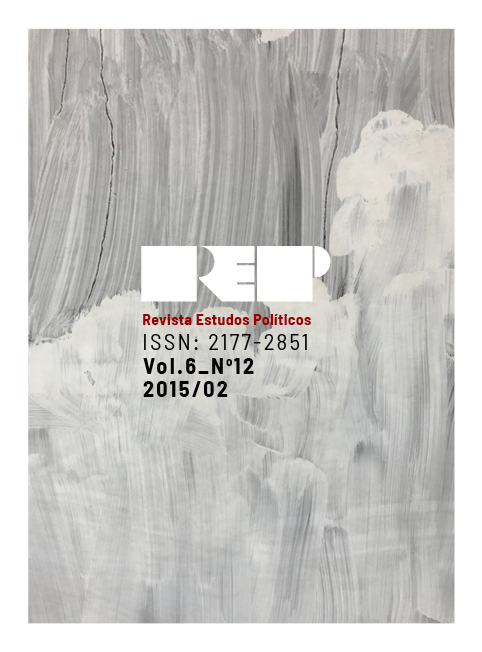Ideas back to their place: social liberalism meets the other West in the work of José Guilherme Merquior
DOI:
https://doi.org/10.22409/rep.v6i12.40385Palavras-chave:
Merquior, social liberalism, the West, Latin America.Resumo
The purpose of this article is to examine José Guilherme Merquior’s conceptual framework of ‘social liberalism’ in the light of the political and social reality of Brazil. This proposal only makes sense insofar as it is understood that Brazil forms a part – albeit with some reservations — of the West. However, the idea of Brazil as a Western country became particularly controversial at a historical time when Latin America was regarded as part of a different (or even opposing) cultural landscape from that which attracted the West, especially among the intellectual mainstream of the Anglo-Saxon countries. On the basis of the assumption that our political culture is not exceptional, Merquior transformed the liberalism which he believed in and upheld, from the prospect of being an ideology of the ‘second degree’ (a term used by Roberto Schwartz to describe the liberal ideology in the context of 19th Century Brazil), to becoming the most ideal escape route from the Brazilian crisis. If our country belongs to the West, and there having no a priori incompatibility between liberalism and Brazilian political culture, Merquior opens up space for theoretical views of different kinds of liberalism to be replaced by the stance of an engaged spectator.Downloads
Downloads
Publicado
Edição
Secção
Licença
Para submeter um manuscrito, os autores devem realizar o cadastro na plataforma, fornecer os dados solicitados e seguir as orientações recomendadas. Para tanto, será necessário apresentar o número da identidade de pesquisador. Para obtê-lo, é necessário realizar o cadastro na plataforma Open Researcher and Contributor ID (ORCID).
Ao submeter um manuscrito, os autores declaram sua propriedade intelectual sobre o texto e se comprometem com todas as práticas legais relativas à autoria. A submissão implica, ainda, na autorização plena, irrevogável e gratuita de sua publicação na REP, a qual se responsabiliza pela menção da autoria.
A REP tem acesso aberto e não cobra pelo acesso aos artigos.
Orientando-se pelo princípio de que tornar público e disponibilizar gratuitamente o conhecimento científico contribui para a democratização mundial do conhecimento, a REP adota a política de acesso livre e imediato ao seu conteúdo.
No mesmo sentido, a REP utiliza a licença CC-BY, Creative Commons, a qual autoriza que terceiros distribuam, remixem, adaptem e criem a partir do trabalho, inclusive para fins comerciais, desde que se reconheça e torne público o crédito da criação original.
Para mais informações, contatar a editora através do e-mail revistaestudospoliticos@gmail.com


